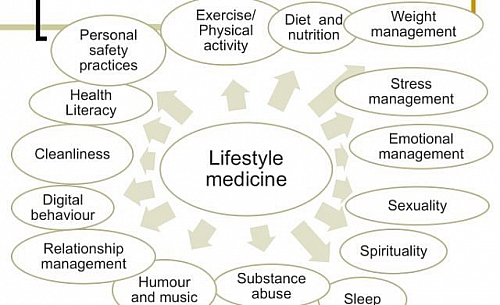
Living a healthy life requires that you have a positive outlook about aging. It is possible to start by adopting a positive attitude and focusing on the things that you are best at. Make sure to take advantage of the opportunities to get in touch with family and friends. If you have any concerns about your overall health, you can always seek professional help.
Get enough sleep is the key to aging well. You should get at least 7 hours of sleep every night. Your body needs time to heal. Depriving yourself of sleep can increase your chances of developing wrinkles. It can also decrease the level of telomeres which are protective molecules that protect cells. Shorter telomeres are associated with a higher risk of cancer and cell death.
Engaging in challenging activities is one of the best ways to take care of your brain. Studies have shown that mental activities that challenge your thinking can enhance cognitive function and brain health. Learning a foreign language or taking up dance lessons are two ways to keep your mind sharp. You can also volunteer or join a club.

A healthy aging program should include regular physical activity. Exercise strengthens bones and muscles. It can also help prevent falls. Physical activity also has a positive effect on your mood. It can improve your mood, energy, and help with weight management.
As you age, your blood vessels narrowen and your heart works harder to pump blood. Exercise can improve circulation, reduce stroke risk, and help you avoid certain cancers. Increasing your activity levels can also help improve your endurance, strengthen your muscles, and reduce your risk of osteoporosis.
Also, you should ensure that your regular doctor visits are being attended to. They should include checkups or annual health screenings. They may also be able to help you identify potential aging issues. You should also discuss your calorie intake with your doctor. You can also reduce the intake of unhealthy additives such sugar, sodium and refined carbohydrates. Avoiding smoking can help lower your risk for heart disease and stroke.
A healthy diet is key to aging well. It is important to eat lots of fruits and vegetables, low fat meats, and other nutrients-dense foods. A lot of water should be consumed. These foods are high-in antioxidants that can help reduce your risk for heart disease. Avoid white bread and white pasta, which are high in sugar. These foods can raise blood sugar. Also, avoid excessive alcohol consumption as it can lead to oxidative stresses.

It is vital to keep your brain healthy as you get older. Learn new things to keep your brain active and engaged. You can also increase your health and well-being by taking up challenging activities. A great way to sharpen your brain is to learn a new skill such as juggling, or playing a musical instrument.
FAQ
Exercise: Good for immunity or not?
Exercise is good for your immune system. Exercise boosts the production of white blood cells in your body that fight infections. Your body also gets rid of toxins. Exercise can help prevent heart disease and cancer. It reduces stress.
But, too much exercise can lead to a weakening of your immune system. You can cause muscle soreness by working out too hard. This can cause inflammation, swelling, and even death. Your body then needs to make more antibodies in order to fight infection. However, these antibodies can also cause allergic reactions and autoimmune diseases.
So, don't overdo it!
How to measure bodyfat?
A Body Fat Analyzer (BFA) is the best method to measure bodyfat. These devices can be used to measure body fat percentages in people who are trying to lose weight.
What are 10 healthy habits you can adopt?
-
Breakfast is a must every day.
-
Don't skip meals.
-
Eat a balanced, healthy diet.
-
Get lots of water.
-
Take care to your body.
-
Get enough rest.
-
Avoid junk food.
-
Get at least one form of exercise each day.
-
Have fun!
-
Meet new people.
Statistics
- Extra virgin olive oil may benefit heart health, as people who consume it have a lower risk for dying from heart attacks and strokes according to some evidence (57Trusted Source (healthline.com)
- This article received 11 testimonials and 86% of readers who voted found it helpful, earning it our reader-approved status. (wikihow.com)
- WHO recommends consuming less than 5% of total energy intake for additional health benefits. (who.int)
- The Dietary Guidelines for Americans recommend keeping added sugar intake below 10% of your daily calorie intake, while the World Health Organization recommends slashing added sugars to 5% or less of your daily calories for optimal health (59Trusted (healthline.com)
External Links
How To
How to Keep Your Body Healthy
This project was intended to offer some recommendations on how you can keep your body healthy. The first step towards maintaining health is to understand what you should do to maintain your health. To do this, we needed to discover what is best for our bodies. We then looked at different ways in which people try to improve their health and we found out that there were many things that could help us. Finally, these tips helped us to stay happier and healthier.
We started by looking at what food we eat. Some foods are harmful and some are good for us. For example, we know that sugar is very unhealthy because it causes weight gain. However, vegetables and fruits are good for us as they have vitamins and minerals that our bodies need.
Next we considered exercise. Exercise improves the strength and energy of our bodies. It can also make us feel happier. There are many activities that you can do. Walking, running, swimming and dancing are just a few of the many options. Yoga is another way to improve your strength. Yoga can be a great exercise as it increases flexibility, improves breathing and is a great way to increase strength. Avoid junk food and drink lots water if you want to lose weight.
Last but not least, we discussed sleep. Sleep is an essential part of our daily lives. When we don't get enough sleep, we tend to become tired and stressed. This can lead to headaches, back pain and other health problems, such as depression, heart disease, diabetes, heart disease, and obesity. So, if we want to stay healthy, we must ensure that we get enough sleep.